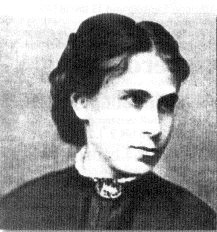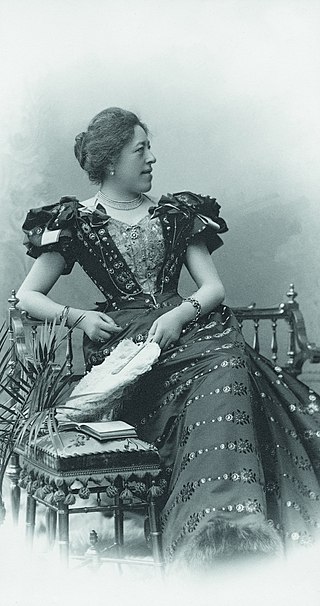
Olga Wisinger-Florian was an Austrian impressionist painter, mainly of landscapes and flower still life. She was a representative of the Austrian "Stimmungsimpressionismus", a loose group of Austrian impressionist painters that was considered avant-garde in the 1870s and 1880s.

Viktor Oskar Tilgner was an Austrian sculptor and medailleur.
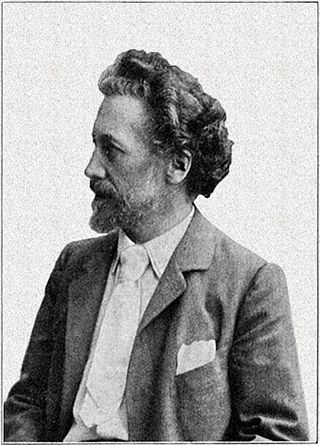
Edmund Ritter von Hellmer, born Edmund Hellmer and ennobled in 1912, was an Austrian sculptor who worked in the styles of Historicism and Art Nouveau.

Nikolaus Dumba was an Austrian industrialist and liberal politician. He is considered to have been an important patron of the arts and music and a benefactor of Greece.

Maria Anna "Mizzi" Zwerenz, married name Marie Guttmann was an Austrian opera singer (soprano), theater and film actress.
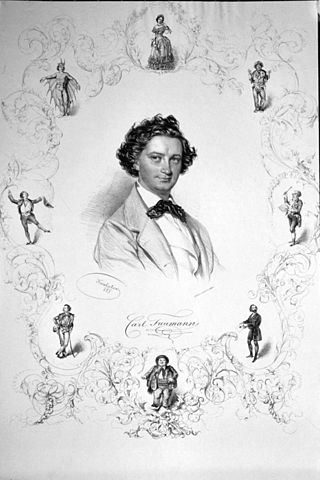
Matthias Karl Ludwig Treumann was an Austrian actor, operetta singer (tenor), theatre director and writer.

Josefine Gallmeyer was an Austrian actress and theatre director of German origin.

Adalbert Franz Seligmann was an Austrian painter and art critic. He signed his criticism with the name "Plein-Air", in reference to a style of landscape painting known as En plein air.

John Quincy Adams was an Austrian genre and portrait painter of American ancestry.
Konrad Adolf Hallenstein, also Conrad Hallenstein was a German actor.
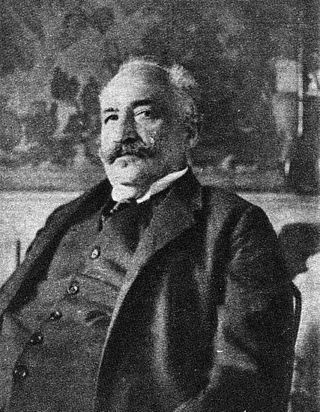
Ignaz Schnitzer was a journalist, translator, librettist and newspaper founder.

Karl Haffner (pseudonym), real name Karl Schlechter, was a German dramaturge.

Ludwig Karpath was an Austrian musicologist.

Selma Nicklaß-Kempner, occasionally also Niklas-Kempner, was a German operatic soprano and singing teacher.

Ludwig Speidel was a German writer, which in the second half of the 19th century was the leading music, theater and literary critic in Vienna.

Carl Karlweis, originally Karl Weiss was an Austrian dramatist and short story writer. Of Jewish ancestry, he converted to Protestantism in 1889.

Jakob Moritz Grün was an Austrian violinist of Hungarian origin. After positions as principal violinist in the court orchestras of Weimar and Hannover, he was, from 1868 to 1897, concertmaster of the Vienna Court Opera Orchestra. He taught notable players at the Vienna Conservatory from 1877 to 1908, including 20 future orchestra members, as well as Carl Flesch and Franz Kneisel.

The Augartenbrücke is a bridge that crosses the Donaukanal in Vienna, which connects the 9th district (Alsergrund) and the 1st district on the southwest side of the canal with the 2nd district, Leopoldstadt, on the northeast side. There has been a bridge on the site since 1782.

Eduard Cramolini also Eduard Kramolin) was an Austrian painter and photographer.
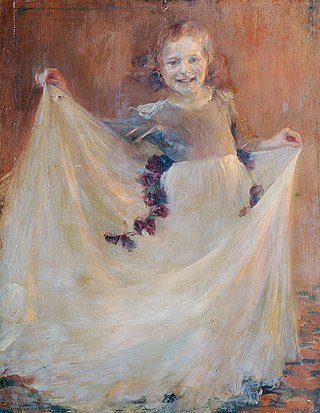
Eugenie Breithut-Munk was an Austrian painter; specializing in portraits and genre scenes. She also designed bookplates, in the Art Nouveau style.
